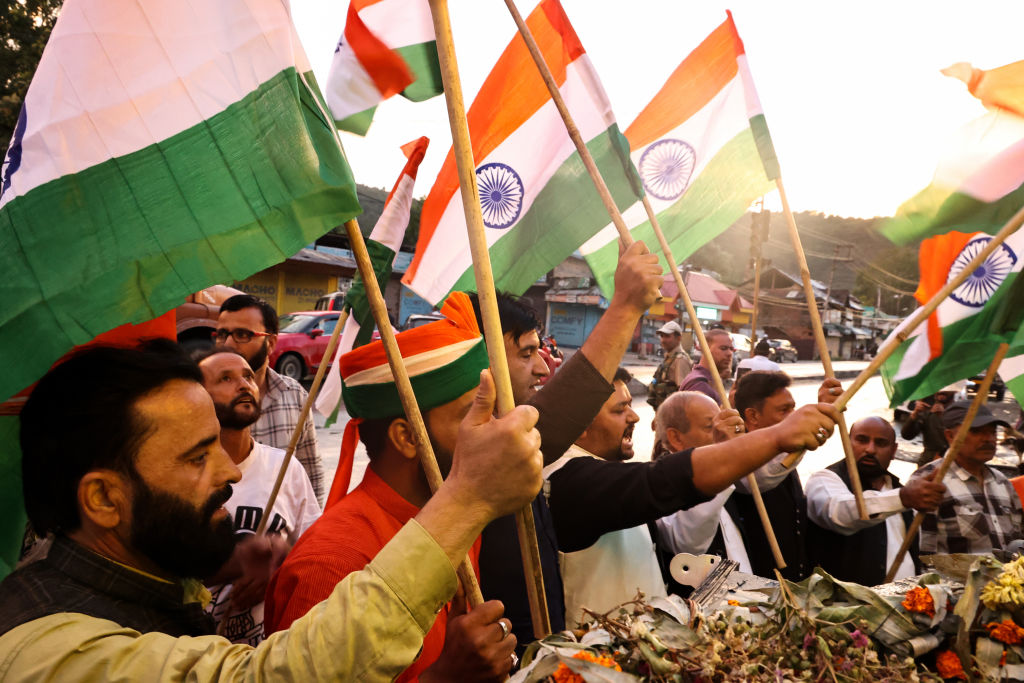Why India is considering changing its name
Some people, including the prime minister, have shown enthusiasm for changing India's name to Bharat


A free daily email with the biggest news stories of the day – and the best features from TheWeek.com
You are now subscribed
Your newsletter sign-up was successful
The world's most populous country is officially called the Republic of India. While the nation also has many other unofficial names and nicknames, its formal moniker remains "India" — at least for now. There has been a push among some people in India, including some in the highest levels of government, to officially change the country's name to "Bharat" — the Hindu word for India.
A historical term for the region, a plan to change the South Asian country's name has seemingly been gaining traction in recent weeks, punctuated by a series of events at the G20 conference in India's capital, New Delhi. At the opening summit of the conference, Prime Minister Narendra Modi sat behind a placard that said Bharat, not India. President Droupadi Murmu also sent out invitations for a G20 reception dinner that referred to her as the "President of Bharat."
While India's prime minister and president both appear to be on board with changing the country's name, the idea has attracted controversy. But why is India considering this switch?
The Week
Escape your echo chamber. Get the facts behind the news, plus analysis from multiple perspectives.

Sign up for The Week's Free Newsletters
From our morning news briefing to a weekly Good News Newsletter, get the best of The Week delivered directly to your inbox.
From our morning news briefing to a weekly Good News Newsletter, get the best of The Week delivered directly to your inbox.
Why is a name change to Bharat being considered?
Both Modi and Murmu follow Hinduism, the religion that makes up the majority of India's population. Modi — and his ruling BJP Party — are longtime proponents of Hindu nationalism in India, as well as using the Hindu version of the country's name over the English "India." As a result, reports from Indian media have suggested that Modi's government "is looking to change the country's name during an upcoming 'special session' of parliament" as a way to cement a national Hindu identity, The Independent reported.
Bharat is actually already one of India's official alternate names — the first sentence of the country's constitution refers to the nation as "India, that is Bharat." Along with an Urdu word, "Hindustan," these three names are "used interchangeably officially and by the public," Al Jazeera reported, but "around the world, India is the most commonly used name." However, a parliamentary change could alter the country's constitution to drop India and make Bharat its primary moniker.
Along with advocacy for Hindu nationalism, Modi and his government are also proponents of doing away with the relics of imperialism. Last month, officials introduced a law that would replace a colonial-era British sedition law with a new version crafted by the Indian government. So Modi's favorable stance on ousting the English "India" in favor of a Hindu word doesn't appear that surprising, and The Guardian noted that he already "typically refers to India as Bharat."
Why is this idea controversial?
While Hinduism is the predominant religion in India, "religious minorities account for roughly 20%" of the country," The Atlantic reported. This has led to controversy over the push toward a Hindu-centric name. Both Muslims and Christians in India "have faced a surge in communal violence in recent years," the outlet added, and some have expressed concerns that changing the country's name could contribute to this ethnocentrism.
A free daily email with the biggest news stories of the day – and the best features from TheWeek.com
The push for a name change is "foolish," opposition leader Shashi Tharoor wrote on X, formerly known as Twitter, noting that India had "incalculable brand value built up over centuries." He added that the country "should continue to use both words rather than relinquish our claim to a name redolent of history."
Michael Kugelman, the director of the South Asia Institute at Washington, D.C.'s Wilson Center, told Time that the name change plan "is an example of wanting to use the term that the BJP thinks is the proper, more appropriate term to use for India." This type of thinking is not new, as "we've seen this trend of renaming streets that have names that refer to the colonial past," Kugelman added.
Others, though, have praised Modi for trying to move away from India's past. "I have always believed a name should be one which instills pride in us," cricketer Virender Sehwag wrote on X. "India is a name given by the British & it has been long overdue to get our original name 'Bharat' back officially."
It remains unclear how likely the change actually is. While the aforementioned media reports claimed Modi's government would try to alter the name in parliament, an actual agenda has not been released.
Justin Klawans has worked as a staff writer at The Week since 2022. He began his career covering local news before joining Newsweek as a breaking news reporter, where he wrote about politics, national and global affairs, business, crime, sports, film, television and other news. Justin has also freelanced for outlets including Collider and United Press International.
